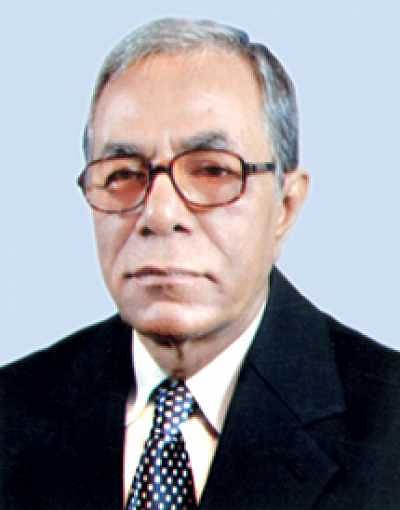President gives nod to 16th amendment
President gives nod to 16th amendment
Lawyers boycott courts across country

The constitutional changes empowering parliament to remove Supreme Court judges on grounds of misbehaviour and incapacity came to effect yesterday as President Abdul Hamid gave his assent to the 16th amendment bill.
With the president signing the bill passed in parliament last Wednesday, the provision for the chief justice-led Supreme Judicial Council (SJC) also ceased to exist after more than 35 years of its introduction.
Thanks to the amendment, now parliament is also vested with the authority to remove the chief election commissioner and other election commissioners; chiefs and members of the Public Service Commission, the Anti-Corruption Commission and the National Human Rights Commission; and the comptroller and auditor general on the same grounds.
The House that regained the power after around four decades, however, will not be able to exercise this until a new law is enacted to make the constitutional changes operational.
The latest amendment stipulates the formulation of a separate law outlining the procedures for investigating allegations against SC judges and removal from office if the allegations are proved.
The president gave his consent to the bill around noon when the BNP-led alliance was observing a countrywide dawn-to-dusk hartal protesting the constitutional amendment.
The BNP at a press conference at the party's Nayapaltan office yesterday morning also urged the president not to do this and requested him to send it back to parliament instead.
"People are not supporting the constitutional amendment. As the guardian of the state, please, you [the president] don't give assent to the bill," said BNP Joint Secretary General Mohammad Shajahan.
To protest the amendment, pro-BNP and Jamaat-e-Islami lawyers too boycotted court proceedings across the country yesterday, as announced by Bangladesh Bar Council earlier.
They brought out processions on Bar association premises, demanding cancellation of the constitutional changes.
Parliament officials went to the Bangabhaban, office-cum-residence of the president, seeking his assent to the bill shortly before noon during the hartal hours, sources in the parliament secretariat said.
The constitutional changes, however, have created an unusual situation.
Parliament cannot remove SC judges or any of the aforementioned persons until the relevant law is enacted. According to an earlier statement of the law minister, the government would make the law in three months after the amendment bill was passed.
And having been abolished through the passage of the amendment, the SJC cannot be used to do that either.
Commenting on the bizarre situation, jurist Shahdeen Malik said now no proceedings for misbehaviour and incapacity can be initiated against any SC judges and other individuals appointed to constitutional and some other statutory offices.
A similar situation once prevailed over four decades ago.
The constitution, which took effect in December 1972, had empowered parliament to remove SC judges by passing a resolution with two-thirds majority on grounds of misbehaviour and incapacity.
But it could not be made effective as the law required to this end was not made.
The situation, however, changed after two years. The fourth amendment to the charter in January 1975 curtailed the House's power and bestowed the authority on the president.
Military ruler General Ziaur Rahman then introduced the SJC by amending the constitution through a martial law proclamation, which was later ratified in the fifth amendment in 1979.
The High Court in 2005 declared the fifth amendment illegal and void. Five years later, the Appellate Division upheld the HC verdict, but condoned the introduction of the SJC until December 2012.
The Awami League-led government reintroduced the SJC through the 15th amendment to the charter in 2011.
However, it just took three years for the AL to change its mind and now it once again amended the constitution to scrap the SJC and restore parliament's power to remove the apex court judges.